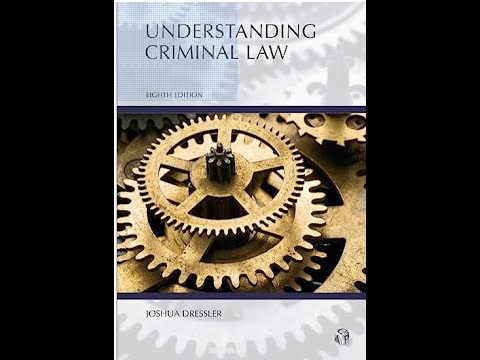
Welcome to this informative article on Understanding Criminal Law: Unveiling Examples and Insights. In the vast and intricate field of US law, criminal law stands as a prominent pillar, shaping the justice system and providing a framework for addressing unlawful behavior. It is important to note that while this article aims to provide valuable insights, it is always advisable to cross-reference with other reliable sources or consult legal advisors for specific cases or inquiries.
1. Defining Criminal Law:
Criminal law encompasses a set of legal rules and regulations that identify and prohibit conduct that is deemed harmful to society. It establishes the guidelines for determining guilt or innocence and imposes penalties for those found guilty of committing criminal offenses. Criminal law is primarily enforced by government entities such as police departments, prosecutors, and judges.
2. Criminal Offenses:
Criminal offenses are classified into different categories based on their severity. Felonies, the most serious crimes, include acts such as murder, rape, and robbery. Misdemeanors, less severe than felonies, consist of offenses like petty theft, simple assault, or driving under the influence. Infractions, the least serious category, involve minor offenses like traffic violations or public nuisance.
📋 Content in this article
3. Elements of a Crime:
To convict someone of a criminal offense, the prosecution must prove the presence of certain elements beyond a reasonable doubt. These elements typically include:
– Actus reus: The voluntary physical act or omission that constitutes the offense.
– Mens rea: The mental state or intention behind the act, ranging from deliberate intent to negligence.
– Concurrence: The requirement that the act and the mental state occur simultaneously.
– Causation: The direct link between the defendant’s actions and the resulting harm.
4. Examples of Criminal Law:
Criminal law covers a wide range of offenses, each with its own set of elements and penalties.
Understanding Criminal Law: A Detailed Explanation and Example
Understanding Criminal Law: A Detailed Explanation and Example
Criminal law is a fundamental aspect of the legal system that aims to maintain social order, protect individuals and property, and punish those who violate the established norms of society. This branch of law deals with crimes committed against the state or its citizens, and it governs the prosecution and punishment of offenders.
Key Principles of Criminal Law:
1.
2.
3.
4.
5.
The Significance of Understanding Criminal Law in the United States: A Comprehensive Overview
The Significance of Understanding Criminal Law in the United States: A Comprehensive Overview
In the United States, criminal law plays a crucial role in maintaining social order and ensuring the safety and well-being of its citizens. It is essential for individuals to have a comprehensive understanding of criminal law to protect their rights, navigate the legal system, and make informed decisions when facing criminal charges or dealing with legal issues.
1. The Basics of Criminal Law:
Criminal law encompasses a set of rules and regulations that define conduct prohibited by the government because it poses a threat to public safety, peace, and order. Violations of criminal law are classified as crimes and can result in various penalties, including imprisonment, fines, probation, or community service.
2. Understanding Criminal Offenses:
Criminal offenses are categorized into different classes based on their severity. Some examples of common criminal offenses include:
3. The Criminal Justice System:
Understanding the structure and components of the criminal justice system is vital for anyone involved in a criminal case. The system consists of three main parts:
4.
Understanding Criminal Law: Unveiling Examples and Insights
Introduction:
Criminal law is a vital aspect of the legal system that governs society and ensures public order. It plays a crucial role in establishing consequences for unlawful behavior and protects the rights of individuals. Staying current on the concepts and principles of criminal law is of utmost importance to both legal professionals and the general public. This article aims to provide an informative reflection on criminal law, including examples and insights, while emphasizing the need for verification and cross-referencing of the content.
Understanding Criminal Law:
Criminal law encompasses a set of rules and regulations that define criminal offenses, establish penalties for those offenses, and outline procedures for prosecution. It covers a wide range of activities, including but not limited to theft, assault, murder, drug offenses, and white-collar crimes. Familiarizing oneself with the fundamental elements of criminal law is essential for comprehending its complexities.
Importance of Staying Current:
1. Legal Professionals: For legal professionals, such as attorneys, judges, and law enforcement officials, staying current on criminal law is crucial to effectively perform their duties. It allows them to develop a comprehensive understanding of the legal framework, remain updated on recent legislation or court decisions, and provide competent representation or adjudication.
2. General Public: The general public also benefits from staying informed about criminal law. Knowing the laws and their implications helps individuals understand their rights and responsibilities, make informed decisions, and avoid engaging in unlawful activities. Additionally, awareness of criminal law can contribute to the enhancement of personal safety and the prevention of victimization.
Examples and Insights:
To grasp criminal law concepts better, let’s consider two examples:
1. Theft: Theft is a commonly encountered offense in criminal law. It involves unlawfully taking someone else’s property without their consent and with the intent to permanently deprive them of it. Elements such as intent, unlawful taking, and lack of consent form the core of a theft charge.
